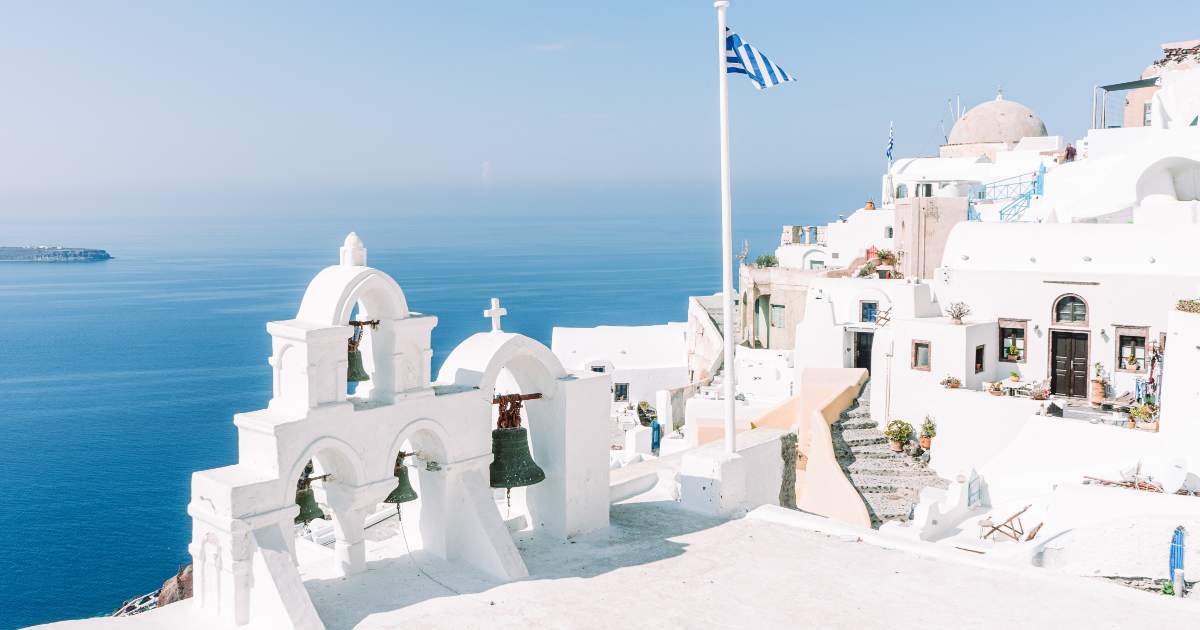Locations with the most attractions in Greece
Greece is a treasure trove of stunning destinations, each offering a unique blend of history, culture, and breathtaking landscapes. Cities such as Athens and Thessaloniki, along with historical regions like the Peloponnese, are packed with attractions that draw millions of visitors each year. Below are some of the key locations where you can explore the richness of Greek heritage.
- Athens - The capital city is home to iconic ruins and vibrant culture.
- The Acropolis - An ancient citadel with the Parthenon.
- The Ancient Agora - The heart of ancient Athens.
- The National Archaeological Museum - A treasure trove of Greek artifacts.
- Plytaea Park - A picturesque spot for relaxation.
- Mount Lycabettus - Offering stunning views over the city. - Thessaloniki - A lively city known for its rich history and intriguing vibe.
- The White Tower - A symbol of the city.
- The Rotunda - A Roman monument with a rich past.
- The Arch of Galerius - A magnificent Roman triumphal arch.
- Aristotelous Square - The main square surrounded by shops and cafes. - Peloponnese - A region rich in history and natural beauty.
- Mycenae - A UNESCO World Heritage site known for its archaeological significance.
- Epidaurus - Famous for its ancient theater.
- Olympia - The birthplace of the Olympic Games.
- Monemvasia - A medieval fortress town.
- Navagio Beach - Stunning views and crystal-clear waters. - Crete - The largest Greek island with diverse attractions.
- Knossos Palace - The legendary home of the Minotaur.
- Samaria Gorge - Ideal for hiking enthusiasts.
- Elafonissi Beach - Famous for its pink sand.
- Heraklion Archaeological Museum - Houses artifacts from Minoan civilization.
Types of attractions in Greece
With its rich cultural heritage and stunning landscapes, Greece offers a diverse range of attractions that cater to all types of travelers. From historical sites and cultural experiences to picturesque natural retreats, there's something for everyone. Below is an overview of the various types of attractions you can explore in Greece.
- Historical - Greece's ancient history is on full display with numerous archaeological sites.
- Acropolis of Athens - Athens
- Ancient Olympia - Olympia
- Knossos - Crete
- Delphi - Delphi
- Mycenae - Argolis
- The Ancient Agora - Athens - Cultural & Arts - Experience Greece’s vibrant culture through art and performances.
- The National Theatre - Athens
- Thessaloniki Film Festival - Thessaloniki
- Greek National Opera - Athens
- Archaeological Museum of Thessaloniki - Thessaloniki
- Cultural Route of the Greek Islands - Various locations - Museums - Home to remarkable collections that showcase Greek heritage.
- National Archaeological Museum - Athens
- Benaki Museum - Athens
- Byzantine Museum - Athens
- Acropolis Museum - Athens
- Archaeological Museum of Heraklion - Crete - Natural - Stunning landscapes and unique geological formations abound.
- Samaria Gorge - Crete
- Mount Olympus - Pieria
- Lake Plastira - Karditsa
- Navagio Beach - Zakynthos
- Pelion Mountain - Magnesia - Religious - Rich in spirituality and stunning architecture.
- Monastery of Meteora - Kalambaka
- Mount Athos - Halkidiki
- Saint John the Theologian Monastery - Patmos
- Holy Trinity Monastery - Meteora
- Monastery of Great Meteoron - Meteora - Family & Theme - Fun attractions for families and children.
- Athens Zoo - Athens
- Water Park Aquaplus - Crete
- Adventure Park - Euboea
- Attica Zoological Park - Athens
- Mythical Gardens - Various locations
Most famous fortresses in Greece
Fortresses in Greece serve as powerful symbols of the nation's rich history and strategic significance in the Mediterranean. Each fortress carries tales of ancient battles and architectural brilliance, standing tall as monuments of heritage. Here are some of the most famous fortresses to explore across Greece.
- Palamidi Fortress - Nafplio - A remarkable fortress with stunning views of the surrounding area; built by the Venetians in the 18th century.
- Castle of Acrocorinth - Corinth - An ancient fortress that offers breathtaking views of the Isthmus of Corinth, with roots tracing back to antiquity.
- Fortress of Kastro - Monemvasia - This medieval fortress town offers a glimpse into Greece's past and incredible architecture.
- Fortress of Chania - Crete - A striking Venetian fortress providing insight into the region's turbulent history.
- Castle of Gythio - Gythio - The castle is built on the ruins of an ancient acropolis and offers spectacular views of the sea.
- Castello del Otranto - Peloponnese - A well-preserved castle revealing layers of history from various civilizations.
- Karaburun Fortress - Lesbos - A historical fortress with a picturesque setting overlooking the Aegean Sea.
- Akrotiri Fortress - Santorini - An ancient fortress offering insight into the strategic importance of this famous island.
National parks and protected nature
Greece is renowned for its natural beauty, with an array of national parks and protected areas that showcase its diverse landscapes and rich biodiversity. These parks provide a sanctuary for wildlife and a haven for nature lovers, offering a variety of trails and outdoor activities. Here’s a closer look at some of Greece's most significant natural parks.
- Mount Olympus National Park - Olympus Region - Home of the ancient Greek gods, this park offers stunning biodiversity, numerous hiking trails, and magnificent landscapes. Open year-round; entry is typically free.
- Lake Prespa National Park - Florina - A UNESCO biosphere reserve known for its rare wildlife and stunning landscapes, ideal for birdwatching and boating. Open all year; small entry fee may apply.
- Samaria Gorge National Park - Crete - Famous for its dramatic gorge and beautiful trekking routes, it features diverse flora and fauna. Open seasonally from May to October; entry fee applies.
- Vikos-Aoös National Park - Epirus - Known for its stunning gorge and rich biodiversity, it is great for hiking and exploring nature. Open year-round; small entry fee required.
- Cheimarros National Park - Thessaly - This lesser-known park features incredible landscapes and offers great trekking opportunities. Open year-round; entry is usually free.
- Natura 2000 Protected Areas - Various locations - A network of sites across Greece focusing on biodiversity conservation.
Major religious sites in Greece
Greece is steeped in spiritual significance, boasting an array of religious sites that showcase its rich architectural heritage. From ancient monasteries perched on rocky cliffs to iconic churches, these sites reflect both the ancient and contemporary faith practices of the Greek people. Here are some major religious sites to consider visiting.
- Monastery of Meteora - Kalambaka - A UNESCO World Heritage site, this monastery complex is famous for its dramatic rock formations and breathtaking views.
- Mount Athos - Halkidiki - An important monastic community that is closed to all but male visitors, home to various churches and ceremonies.
- Church of Saint George - Edessa - Known for its stunning frescoes, dating back to the Byzantine period and reflecting Greek Orthodox traditions.
- Monastery of Great Meteoron - Meteora - The largest of the Meteora monasteries, offers insights into monastic life and spiritual heritage.
- Basilica of Saint John the Theologian - Patmos - A significant pilgrimage site associated with the Book of Revelation.
- Church of Panagia Paraportiani - Mykonos - An iconic whitewashed church with stunning views of the sea, showcasing unique architectural styles.
Visitor tips for attractions in Greece
Visiting attractions in Greece can be a rewarding experience, but it's essential to plan accordingly to ensure a smooth journey. Here are some practical tips to help you enjoy your visit to Greece's marvelous sites safely and efficiently.
- Check opening hours beforehand; many attractions close on Mondays.
- Look for combination tickets that can save you money on multiple sites.
- Dress modestly when visiting religious sites, covering shoulders and knees.
- Photography is often restricted in churches and monasteries; ask permission when in doubt.
- Be respectful of local customs and adhere to any posted guidelines.
- For remote sites, consider renting a car or using guided tours for easier access.
- Carry cash; some smaller locations might not accept credit cards.
- Be aware of the local currency (Euro), and use it for small purchases.























